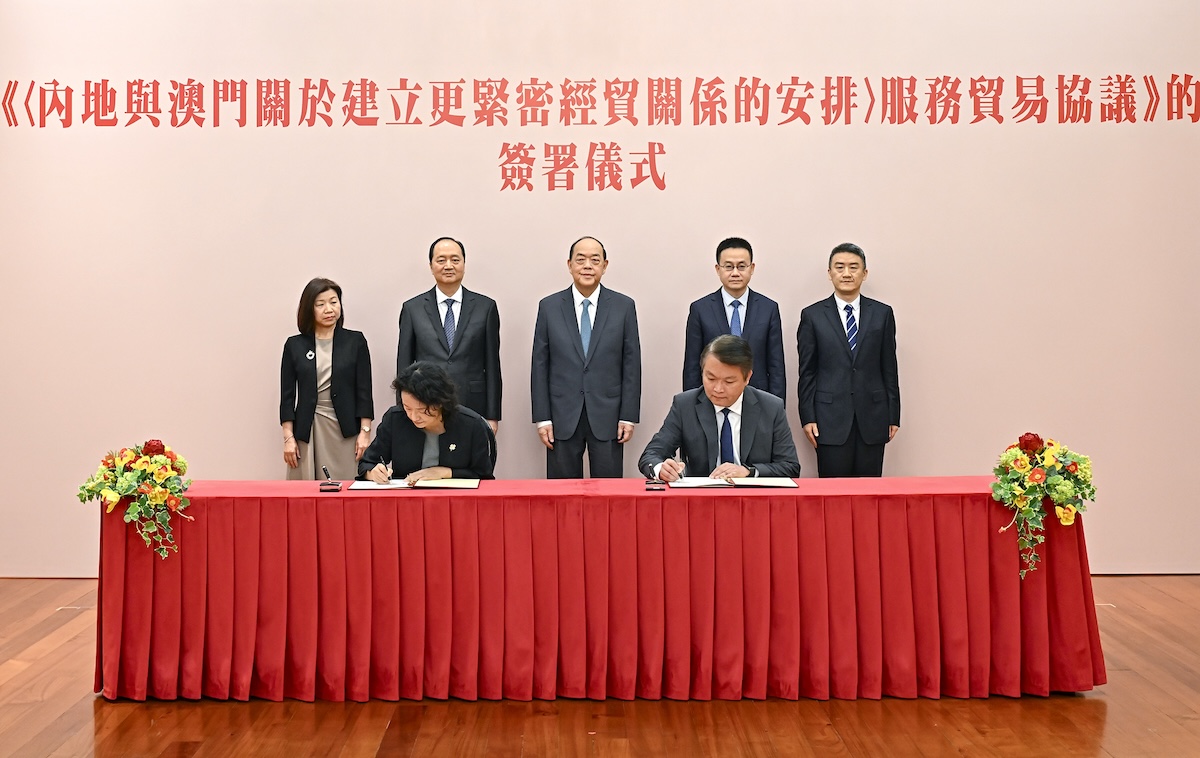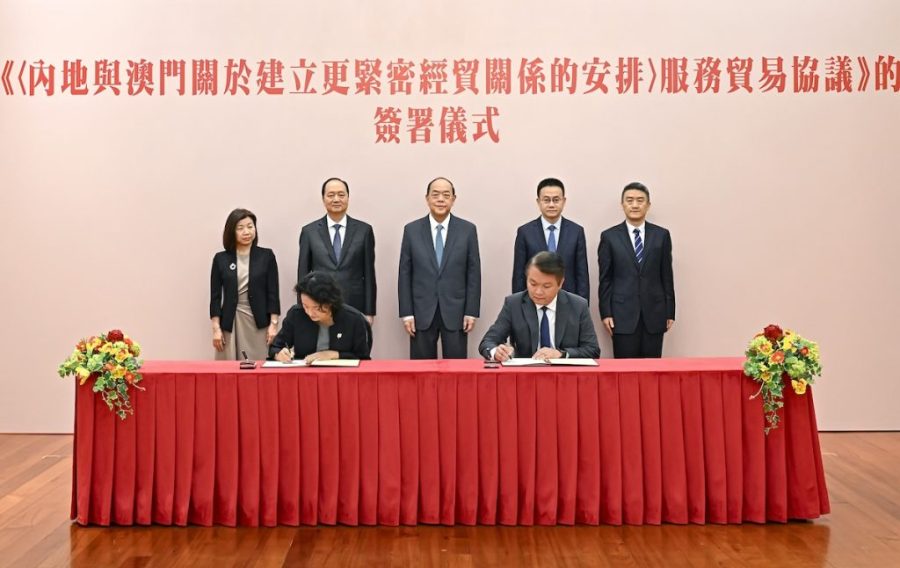Macao and the mainland have signed an updated version of the Closer Economic Partnership Arrangement (CEPA), aiming to deepen economic exchanges and cooperation between the two sides, the Office of the Secretary for Economy and Finance announced yesterday.
While the amendments won’t come into force until 1 March 2025, their signing now helps mark the 25th anniversary of Macao’s handover to China. The agreement is being hailed as a new chapter in Macao’s integration with the mainland, as well as a boost to the SAR’s economic diversification efforts and the development of Guangdong-Hong Kong-Macao Greater Bay Area.
Many of the amendments relate to emerging sectors in Macao’s economic diversification plan. For example, local tech companies certified under the ‘Technology Enterprise Certification Scheme’ will be treated on par with mainland companies and entitled to the same tax benefits from 1 March.
[See more: Macao and Hong Kong are linking their bond markets]
Financial services providers, meanwhile, will no longer need at least five years of substantial commercial activity to operate in the mainland.
Macao’s cultural enterprises are also set to benefit. From 1 March, film productions and soap operas co-produced with mainland firms will be considered domestically produced as far as broadcasting and distribution are concerned.
The new CEPA will create “more favourable conditions” for Macao services suppliers to operate in the mainland, according to the office’s statement. A clause requiring these firms to have engaged in substantial business activity for at least three years before branching into the neighbouring market has been removed, opening mainland up to younger Macao businesses.
Professional services in areas including construction, accounting, medicine and education will also enjoy more favourable conditions when it comes to entering the vast mainland market.
Macao’s secretary for economy and finance Lei Wai Nong and the deputy representative for international trade of the national Ministry of Commerce, Li Yongjie, signed the agreement at the SAR’s government headquarters on Thursday. The ceremony was attended by Chief Executive Ho Iat Seng and Zheng Xincong, the Director of the Central Government Liaison Office in the Macao SAR.
The first iteration of CEPA was signed in October 2003 and it has served as a Free Trade Agreement between Macao and the mainland.






